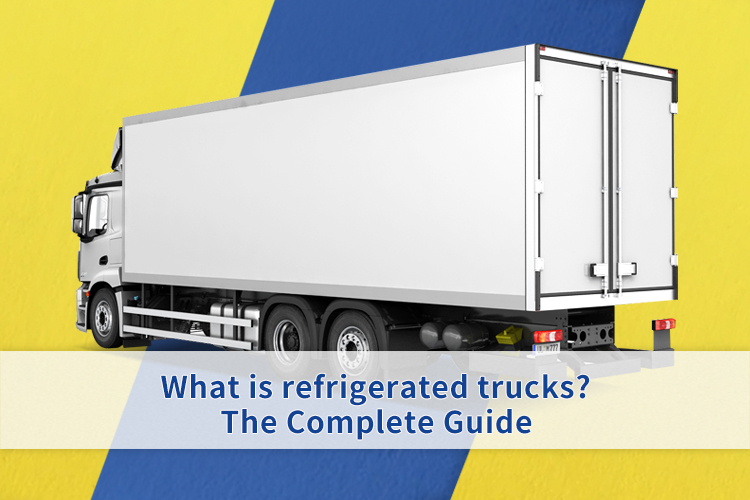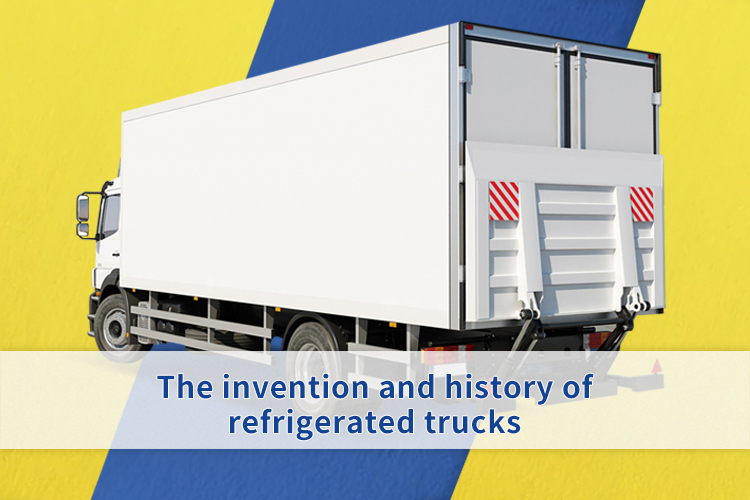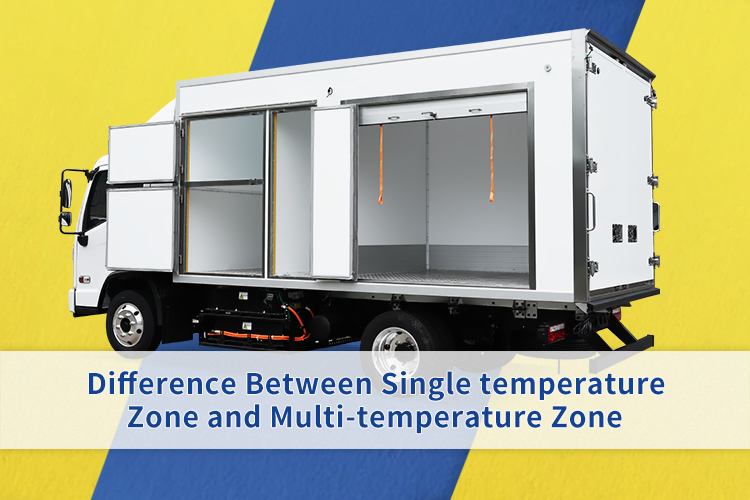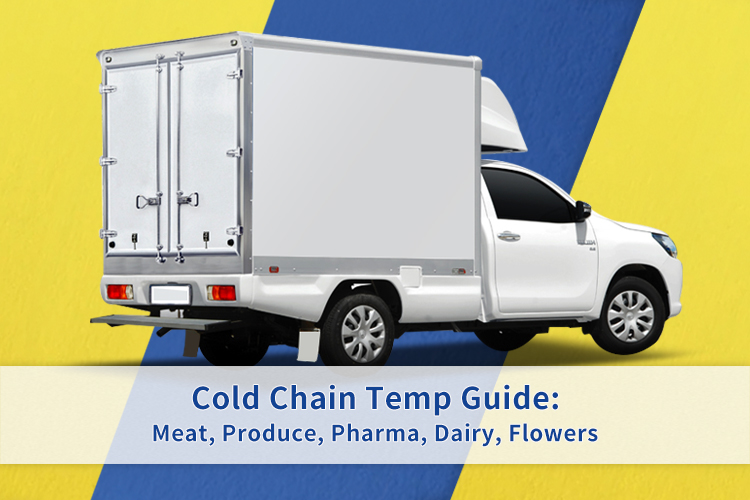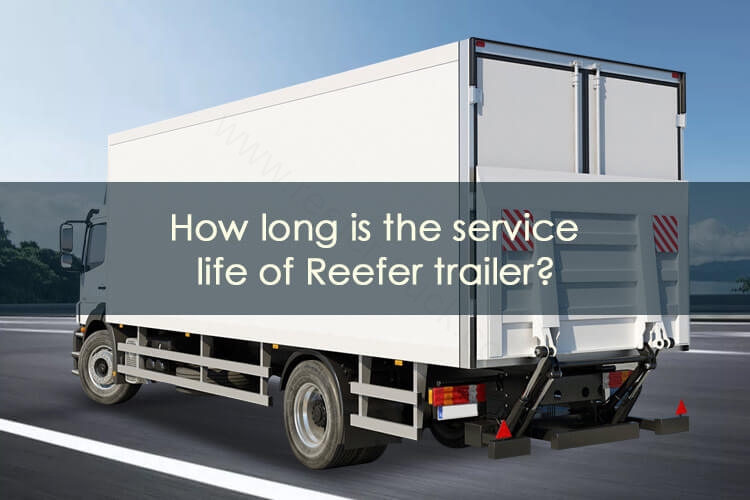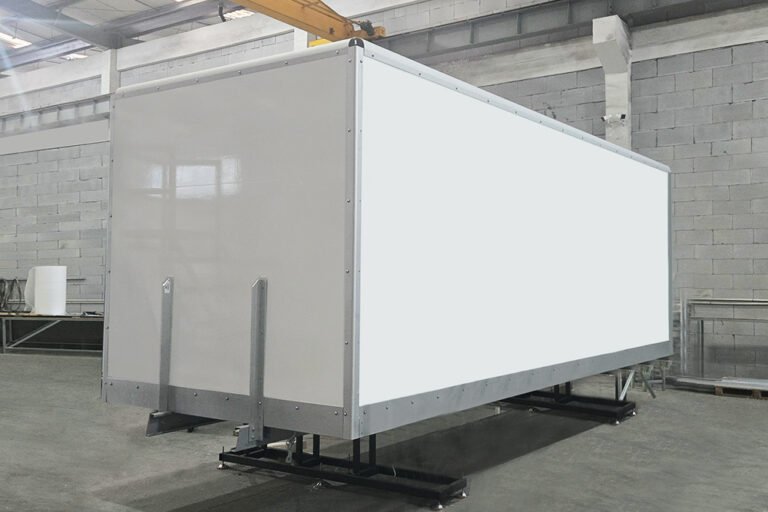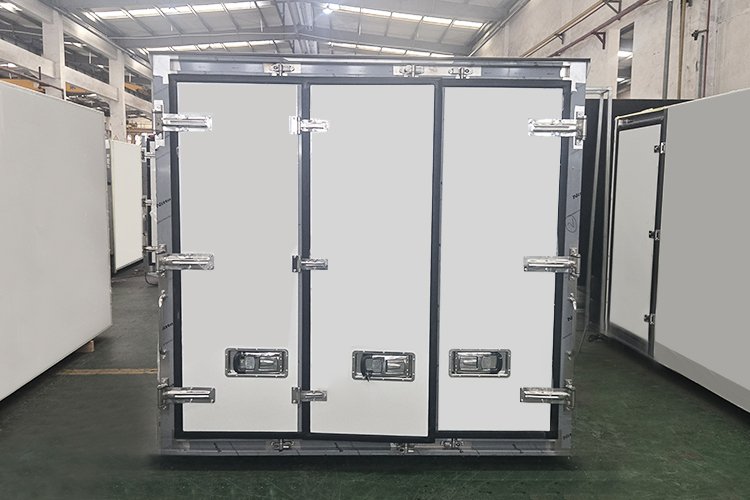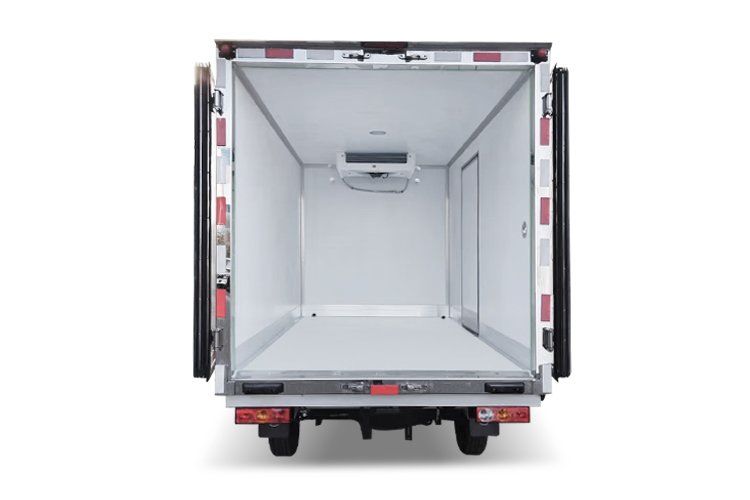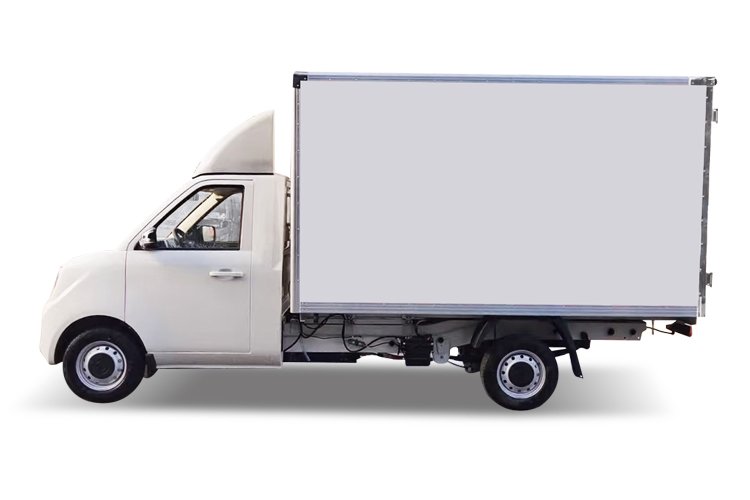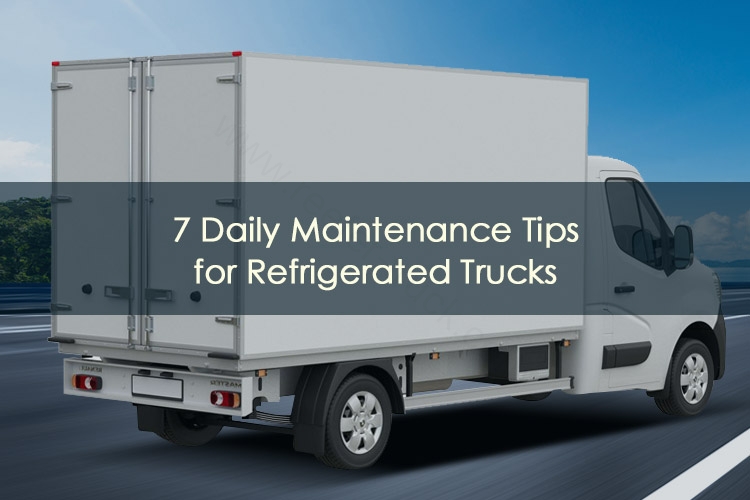What Is Refrigerated Trucks? The Complete Guide
Refrigerated transportation means using refrigerated trucks, or “reefer trucks,” to move goods. These trucks often have refrigerated trailers and box trucks. They are built to keep items cold.
Refrigerated trucks are vital for cold chain logistics. They keep fresh food and pharmaceuticals safe and non-perishable. These trucks use strict temperature controls to ensure the supply chain runs smoothly.
There are different types of refrigerated trucks, such as minivans for local distribution and large trailers for long-distance transportation. Insulation materials also vary—some use thick foam walls (such as polyurethane) suitable for frozen goods, while others use lighter construction suitable for refrigerated items. This flexibility allows them to handle temperatures ranging from -40°F for ice cream to 35°F for vegetables.
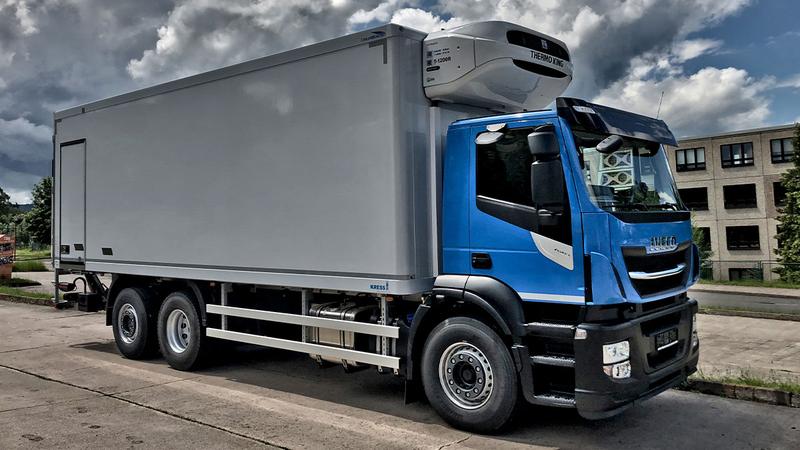
What can refrigerated trucks transport?
Reefer vans can transport frozen foods (meat, seafood).
fresh produce (apples, lettuce)
dairy products (milk, cheese), and
even pharmaceuticals (vaccines, insulin, etc.).
They are important because without them, these goods could spoil, causing losses to businesses and threatening safety. Refrigerated transportation isn’t just about moving goods; it’s about delivering quality and reliability every mile.
What is Refrigerated Transportation?
What does “Reefer” mean in transportation?
Reefer is short for refrigerated, and according to the experts at Composite Box, the term comes from the early days of ice cooling, such as in the 1900s, and was used primarily on refrigerated ships and warehouses. But today’s modern refrigeration units can maintain temperatures between -40°F and 70°F, allowing for the transportation of virtually any cargo that requires cooler temperatures. But, dry cargo vans, as discussed in our reefer truck vs dry van comparison, are not refrigerated and can only transport non-perishable items. The advent of reefer vans reduces the cost of refrigerated products, making them more affordable, accessible, and easily available to millions of people.

How does refrigerated transportation work?
The refrigeration unit in refrigerated transportation runs on diesel fuel. It operates independently and powers equipment like the evaporator and compressor. These parts circulate refrigerant to keep the cargo’s temperature stable. A stable temperature is important, but so is an even temperature distribution. This ensures the whole internal space stays at a steady temperature. To achieve this, an air circulation system, such as air tanks, will be used.
The driver usually cools the truck or trailer ahead of loading. This keeps the cargo safe and fresh from start to finish.
What is the difference between circulating air and continuous air in a refrigerated trailer?
Cycling and continuous are two different ways to run a refrigeration unit, and they have significant variations in fuel consumption and temperature.
Cycling a refrigeration unit reduces the consumption of diesel fuel but has temperature variations that are visible to the naked eye.
Continuous air provides a constant supply of cool air, essential for temperature-sensitive cargo.
Types of cargo transported in refrigerated transportation
What are the common refrigerated cargoes?
Reefer transportation carries a variety of goods that require low temperatures. For example, frozen foods, such as ice cream and meat, are kept at -10°F to maintain a frozen state. Fresh produce, such as fruits and vegetables, requires 32-36°F to maintain freshness. Pharmaceuticals, such as vaccines, also rely on refrigerated trucks to prevent spoilage and meet food safety standards, while some chemicals require steady cooling. Each type of cargo has its own temperature setting to ensure quality, making refrigerated transportation vital for searches such as “refrigerated transportation for pharmaceuticals.”

What are the most common cargoes that rely on refrigerated transportation?
Refrigerated transportation supports key industries such as food and beverage, pharmaceuticals, and flower logistics. Supermarkets rely on it to stock fresh meat and produce in their supply chains. The medical industry uses refrigerated trucks to safely transport COVID-19 vaccines. Flower companies also use it to keep flowers delivered perfectly. These examples show how reefer trucks sustain business operations and meet the huge demand, attracting crowds searching for industry-specific transportation solutions.
Similar composite materials used in reefer trucks can enhance our enclosed car trailer, ensuring durability for specialized transport.
Benefits and Challenges of Reefer Transportation
Benefits of Reefer Transportation
Reefer transportation offers many benefits. It allows for the transport of frozen and refrigerated food, supported by durable materials like GRP plywood panels in truck body construction. Also, it’s more profitable for logistics and leasing companies. With the same mileage and time, reefer trucks can generate more value than dry freight trucks. For cargo, there can be high-quality preservation of goods, it can extend the shelf life, and it can meet the food and drug safety valves, it can improve the virtuous cycle of the market, and improve consumer satisfaction.
Refrigerated transportation can boost a driver’s income. According to driverresourcecenter.com, these drivers earn an average of $3.04 per mile, which is higher than most transport jobs. Plus, the work offers good flexibility. If there’s no refrigerated cargo, drivers can turn off the refrigeration. This allows for more options and opportunities. With a $12 billion market for refrigerated transportation, refrigerated transportation is great. Learn more about reefer trucking market trends at reefer trucking market trends.

Challenges of Refrigerated Transportation
Refrigerated transportation is not an easy job. Refrigerated transportation costs a lot. This is mainly due to equipment and diesel fuel consumption. Energy prices keep rising, and natural disasters happen more often. Plus, equipment failures add to the issues. Overall, refrigerated transport is facing many challenges.
The biggest problem with refrigerated transportation is the need for really high-quality box truck bodies that can provide better insulation and reduce energy costs. In the past, the use of poor materials for truck bodies required higher power for the refrigeration unit to keep the temperature stable. These problems have been solved since composite box invented a new generation of hard-wearing, new refrigerated van bodies.
Of course, in terms of aging and durability of accessories, there are still more conditions; if we do not deal with these problems, in the later stage, the hidden cost will increase a lot. That’s why we need to look for reliable suppliers when picking refrigerated truck parts, just like Composite Box offers a full range of truck kits that can be supplied to any refrigerated truck.
In addition, maintaining the refrigeration equipment is a topic that requires regular repair and maintenance; otherwise, one day it won’t work properly and it will ruin all the goods. It must be cleaned regularly; if the refrigeration unit breaks down, then the loss is very heavy, and Composite Box is constantly researching issues such as the maintenance of refrigeration units to make sure that it can help and make it easier to eliminate all sorts of challenges.
Characteristics of Refrigerated Trucks
Refrigeration Units and Technology
Refrigerated trucks rely on refrigeration units to keep their cargo cold, and these units use either diesel-generated electricity or electric power, and are equipped with digital controls and sensors to set precise temperatures. Transportation Refrigeration Units, also known as TRUs, can be used when the engine is switched off; they maintain a constant temperature inside, and they can also be connected to the driver via a 4G module, which allows the driver to see the temperature changes in real time, ensuring the safety of the refrigeration unit. Today’s refrigeration technology is very advanced and well developed, which is something we’re very thankful for.
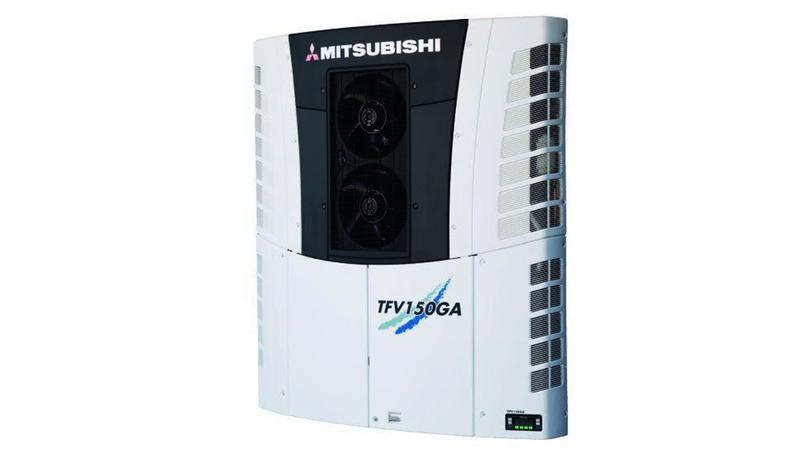
Trailer and Body Design and Insulation
Reefer truck design differs greatly from dry freight trucks. Our refrigerated truck bodies use fiberglass insulation foam panels on the outside. Inside, they typically have polyurethane foam or XPS foam. This design helps keep heat out and maintains a uniform internal temperature. An air chute also aids in this process.
and dry freight trucks are not the same; the point is that reefer trucks are sealed with extremely high-performance requirements. A good sealant is needed to ensure that cold air does not escape through the gaps. This makes the refrigeration equipment even better.
Air Chutes in Refrigerated Trailers
Air chutes in refrigerated trailers are very important. They are ducts linked to the refrigeration unit. This setup lets cold air flow through the chute and T-vented floors. They prevent and avoid the following causes:
Freezing at the top: Damage to goods that are too close to the refrigeration unit due to frost.
Short Circulation: Uneven temperature of the load due to internal cargo placement and blockages that prevent airflow through the entire trailer.
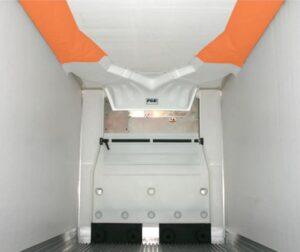
How to Get Started in Refrigerated Transportation
Reefer Driver Requirements
To drive a reefer truck, as well as to be a reefer driver, you need to have a commercial driver’s license (CDL), which is the basic requirement, and some states require a reefer certification, which proves that you are able to handle cold cargo and know the basics of equipment maintenance. Once you’ve mastered everything, you’re ready to start working as a reefer driver.
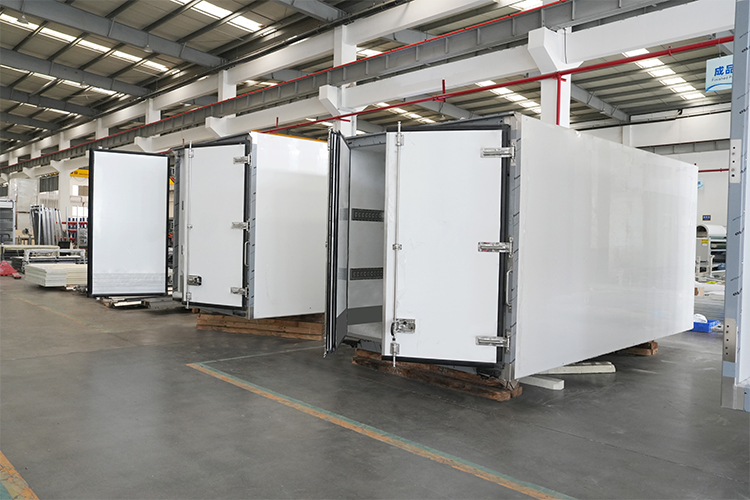
Choosing the Right Reefer Body
Picking the right reefer body can solve many problems. The right choice can boost commercial effectiveness and provide more benefits. Fiberglass composite compartments give you a reefer truck that is tough and long-lasting. They resist abrasion and impact. Plus, they offer better insulation and waterproofing. This helps your business run more smoothly.
Related Post
Related Product
Author introduction

Hello, customers
My name is Jack Yu and I am the Business Manager of Composite Box. I have been in the business of sandwich panels, refrigerated trucks and RVs for more than 10 years. Please feel free to contact us. I am happy to provide you with the best service and products.
Email: info@composite-box.com | Tel: 86+17280837525

